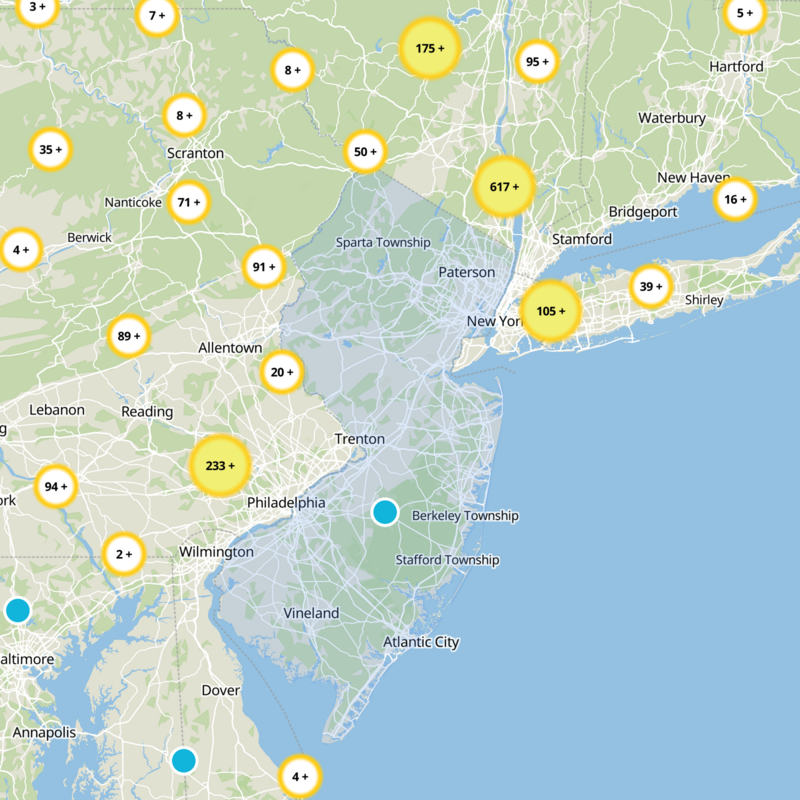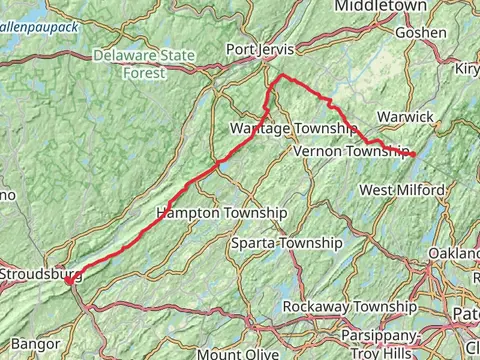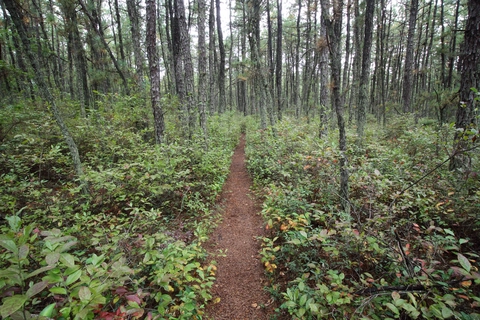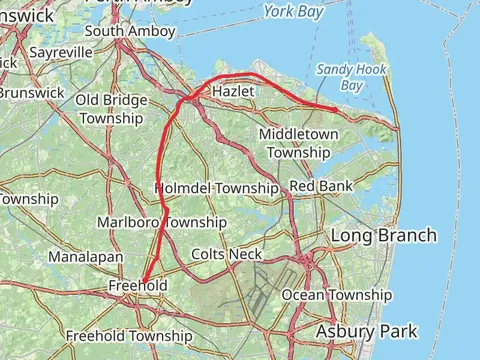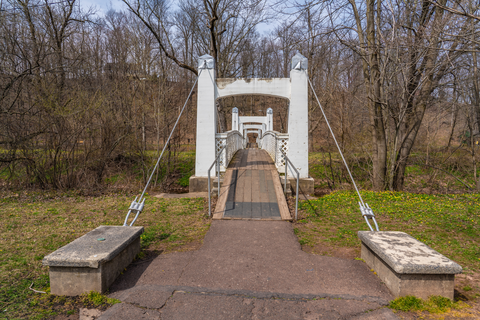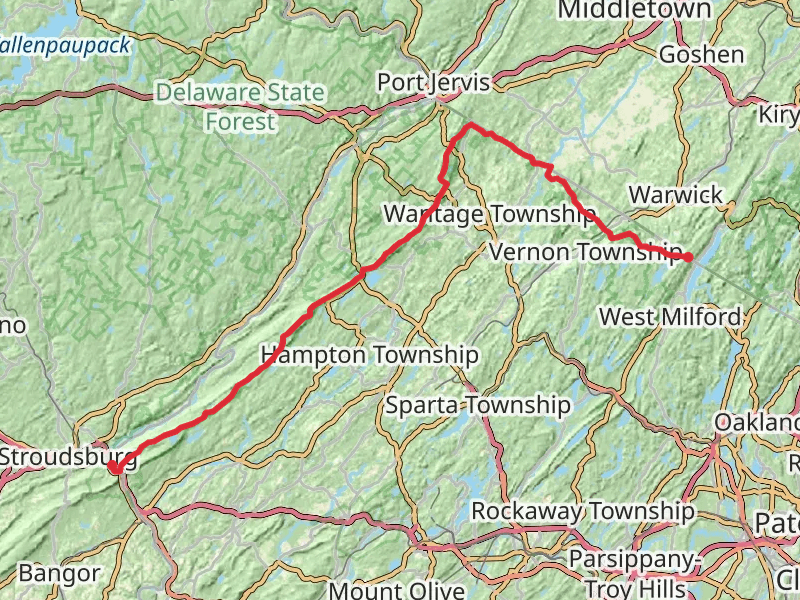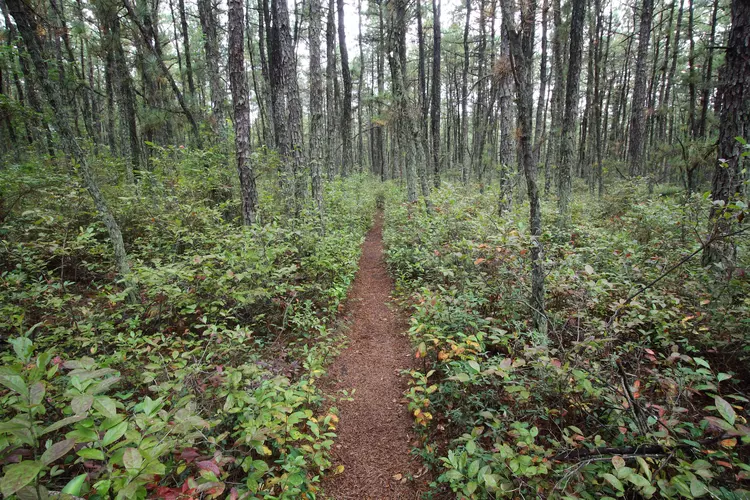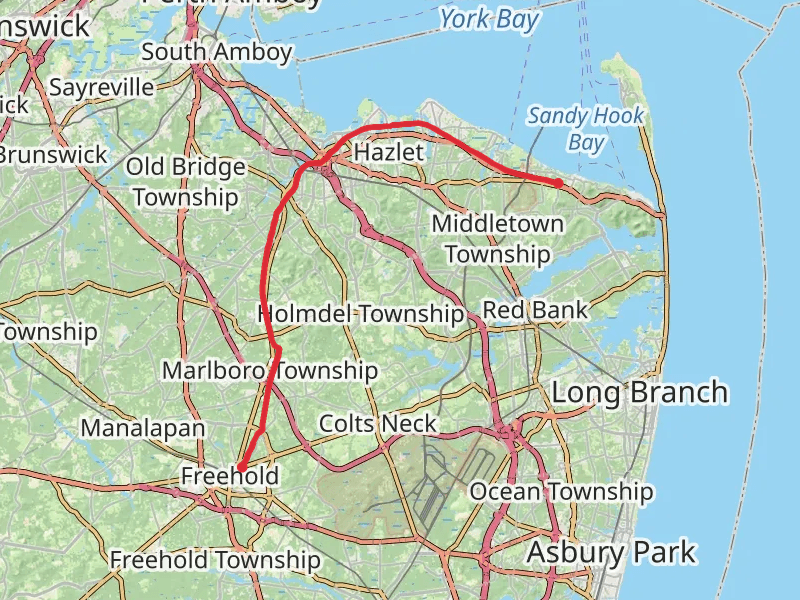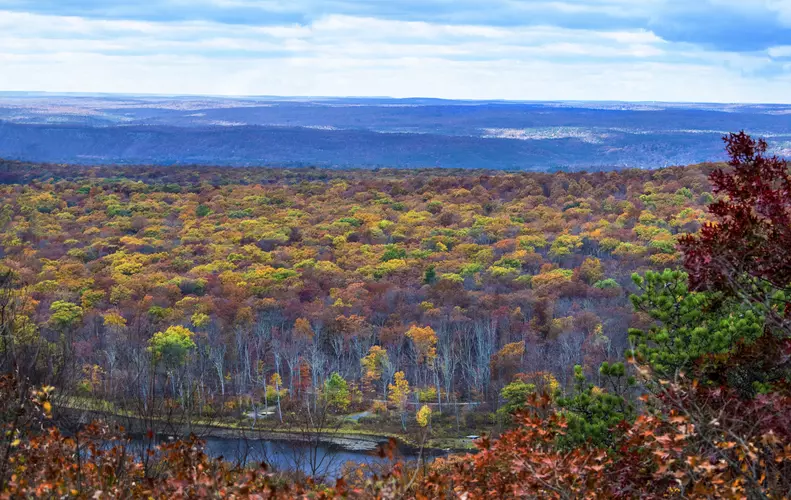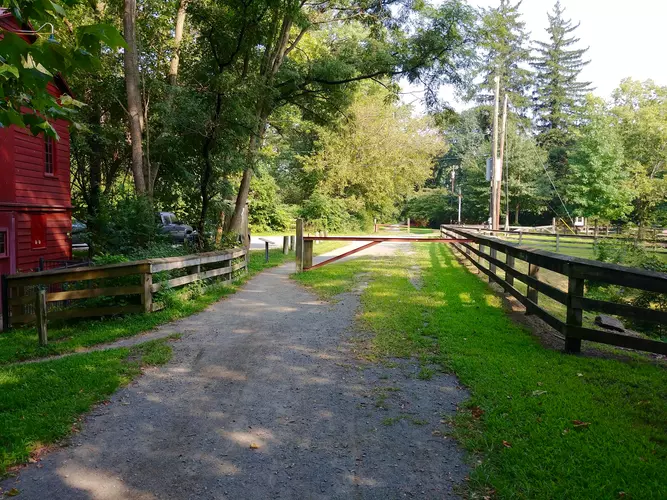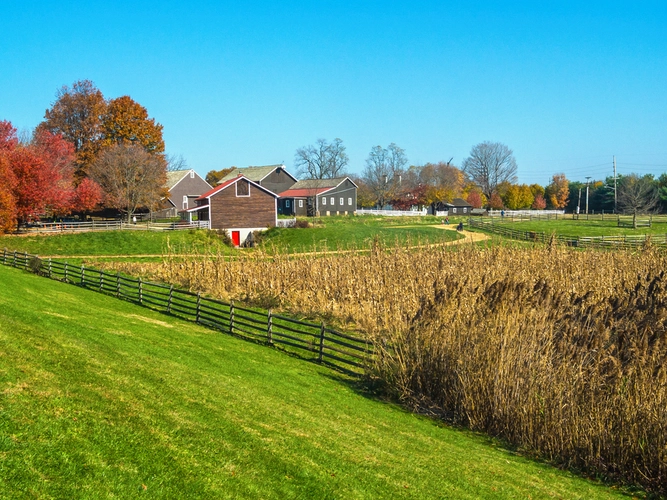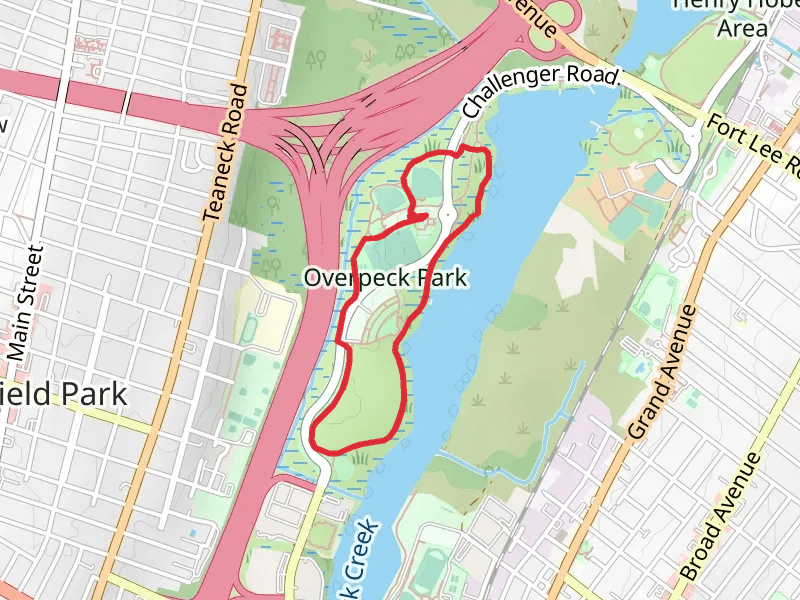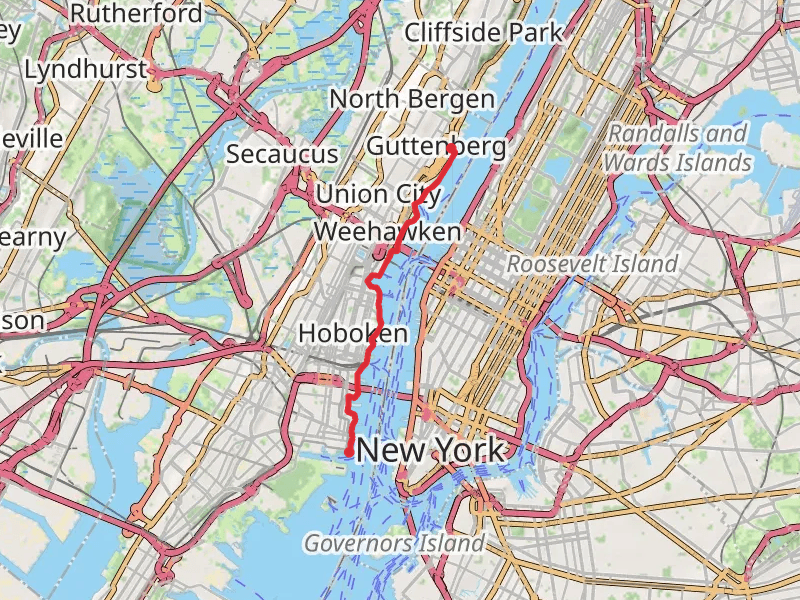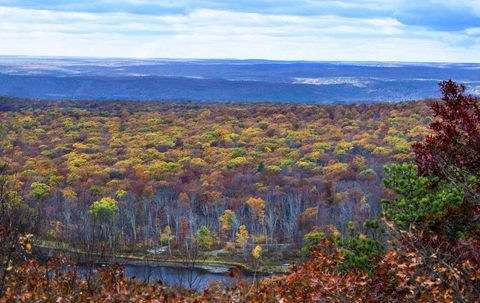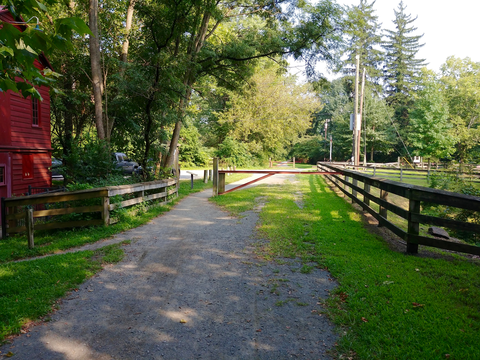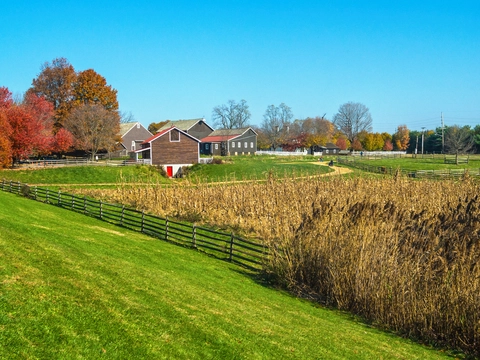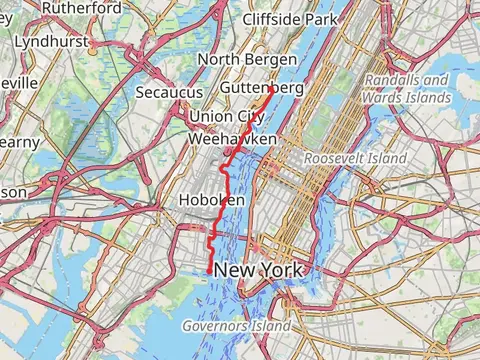"New Jersey's trails unveil stunning landscapes, from rugged cliffs to serene forests and coastal vistas."
New Jersey, often overlooked, is a hidden gem for hikers. From the rugged cliffs of the Palisades offering breathtaking views of the Hudson River to the serene Pine Barrens with its unique flora and fauna, the state is a tapestry of diverse landscapes. Explore the Appalachian Trail as it winds through the verdant forests of the Delaware Water Gap, or wander the coastal trails of Sandy Hook with sweeping ocean vistas. Each trail tells a story, inviting you to discover the unexpected beauty of the Garden State.
Most popular hikes
FAQs about hiking in New Jersey






